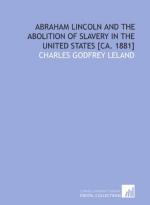|
This section contains 5,470 words (approx. 19 pages at 300 words per page) |

|
SOURCE: Thomas, Helen. “Robert Wedderburn and Mulatto Discourse.” In Romanticism and Slave Narratives: Transatlantic Testimonies, pp. 255-71. Cambridge: Cambridge University Press, 2000.
In the following excerpt, Thomas analyzes two nineteenth-century abolitionist texts written by ex-slave Robert Wedderburn, focusing especially on the impact and influence of his mulatto identity on the works.
But there comes a time, as it came in my life, when a man is denied the right to live a normal life, when he can only live the life of an outlaw because the government has so decreed to use the law to impose a state of outlawry on him.1
Now I have scarcely a drop of black blood left in me, my blood having so faded with the blood of a Minister, that I am [becoming] as white as a Mulatto.2
Whereas Equiano's narrative of spiritual redemption presents a relatively circumspect demand for political reformation, the...
|
This section contains 5,470 words (approx. 19 pages at 300 words per page) |

|


